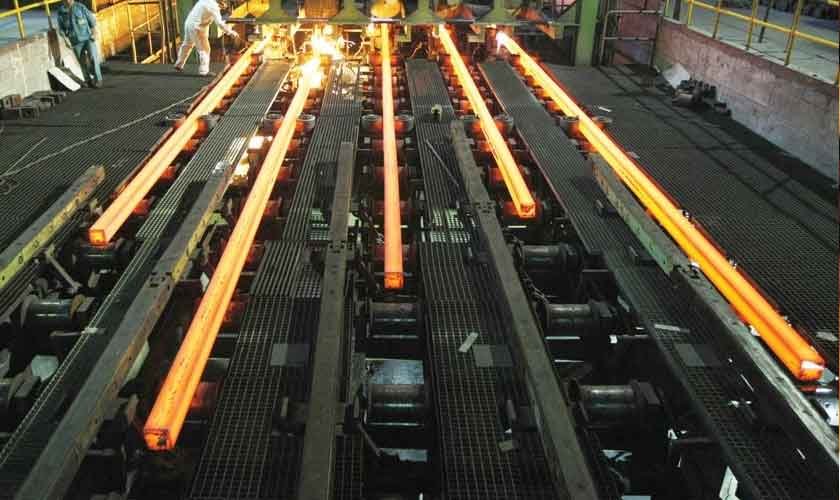The greatest significant shift in the global power balance since World War II is taking place as the global economy transitions to a new multipolar world order. The increased contribution of the BRIC (Brazil, Russia, India, and China) countries to global production and trade, which has outpaced the rise of the US and EU economies in the last decade, has accelerated this shift, which was already underway.
This transition offers opportunities for emerging countries, such as Pakistan, to create economic and investment ties with their neighbours and other local economies. However, now that significant threats have emerged, we are less free to pursue our own foreign, economic, and energy security objectives.
The most serious concern is the balance of payments problem, which jeopardises Pakistan’s ability to repay its foreign debt. The International Monetary Fund bailout has helped to stabilise the economy and eliminate the threat of default. However, it looks to come at a cost, as Pakistan is unable to buy oil at a discount from Russia, as India, China, and Bangladesh have done successfully to safeguard their populace from spiralling price increases.
Pakistan has several economic choices under the emerging multipolar international system. However, given our reliance on worldwide multilateral financial institutions that are heavily influenced by the West, the challenge is determining how to pursue these opportunities diplomatically and strategically in accordance with our national objectives.
Energy and food security are critical for the new, developing international order, and countries such as China and India are attempting to secure supplies even at the expense of enraged superpowers.
To accomplish this, we must strengthen economic ties with developing countries that provide Pakistan complementary trade and market prospects for our goods and services, while simultaneously increasing collaboration and contacts with established superpowers. This is critical given our weak foreign account position.
The need for energy and food security is once again driving the new, evolving world order, and more nations, such as China and India, are attempting to ensure their energy supply even if it means enraging the western powers.
The financial infrastructure and channels that Europe and India are using to deal with Russia will become a reality and increasingly acceptable over time as a result of acute energy needs. Overall, economic and energy challenges are resolving the world’s polarisation faster than before.
We in Pakistan cannot afford to overlook the emergence of a new, worldwide order. How we appraise global affairs and consider modifying our political status will have a direct impact on our future economic strategy. Given how quickly the winds of change are blowing around the world, we will need to move quickly on foreign policy to avoid falling behind and jeopardising our shared ambition of a prosperous, independent, and safe Pakistan.
In fact, decisions about foreign policy and economic policy are inextricably connected, needing tight coordination and cooperation between the Ministry of Finance and the Foreign Office in order to achieve our common goals. To restore Pakistan’s balance of payments and set the country on a new path of inclusive and sustainable prosperity, the ruling establishment must accept this reality and mobilise all resources.
Let us look at the opportunities that this changing climate offers Pakistan. The most crucial is to gain assistance in meeting our infrastructure and inventory flow needs, as well as improved trade terms for gas and wheat in order to meet our food and energy security demands.
If Europe and the rest of the world come to accept Russia’s role in trade, there may be an opportunity to repair and grow energy infrastructure together. The Russia-Ukraine crisis has exposed new vulnerabilities to climate change, with Western economies exposing the limits of their support for environmentally beneficial and climate-smart solutions.
Moving forward, many emerging and advanced economies will demand a more diverse energy mix that includes gas, nuclear, and renewable energy. Bilateral and international partners will supply money, particularly for large energy projects. Pakistan should investigate nuclear energy in particular as a potential low-carbon alternative fuel for electricity generation.
Working with China and Russia can assist us repair our state-owned industries, especially our white elephants like Pakistan Steel Mills. This new cash-rich region will surely be more interested in our privatisation assets.

No nation can progress unless it collaborates with its neighbours. Unfortunately, Pakistan has suffered from tense relations with its neighbours, but changes in the region’s geopolitical structure have enormous implications.
India and Russia already have strong ties. If Russia can use its power to reduce tensions between India and Pakistan in order to maintain regional peace, this may benefit us in some way. China and India compete for regional power and influence, but they also continue to collaborate since they share economic aspirations. As a result, China can play an important role in easing tensions between New Delhi and Islamabad.
Another noteworthy issue is Afghanistan’s trading connections with Russia. Because the West is unwilling to reach out to Afghanistan, Russia and China have an opportunity to expand as regional powers. A stable Afghanistan would be extremely beneficial to Pakistan.
Pakistan will benefit if the United States relaxes sanctions and resumes trade with Iran in the hopes of negotiating a nuclear deal.
Pakistan must realign itself in light of these evolving global circumstances, with a long-term vision on where we want the country to go. We must use all of the economic and foreign policy tools at our disposal to capitalise on our geostrategic location and abundant natural resources and human capital to embark on a new path of sustained economic prosperity.
Proactive diplomatic actions will be required to attract foreign investment and publicise our products and services in both major and small markets. To reduce our dependency on foreign debt, our economic leaders must prioritise export-led development and a favourable external account balance. The time to act is now, and all parties involved must support it.
Jalil Abbas Jilani, former foreign secretary, and Zafar Masud, president and CEO of Bank of Punjab

